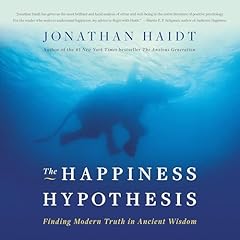
Wild Justice
The Moral Lives of Animals
Failed to add items
Add to Cart failed.
Add to Wish List failed.
Remove from wishlist failed.
Adding to library failed
Follow podcast failed
Unfollow podcast failed
 Prime members: New to Audible?
Prime members: New to Audible?Get 2 free audiobooks during trial.
Buy for $17.33
-
Narrated by:
-
Simon Vance
Scientists have long counseled against interpreting animal behavior in terms of human emotions, warning that such anthropomorphizing limits our ability to understand animals as they really are. Yet what are we to make of a female gorilla in a German zoo who spent days mourning the death of her baby? Or a wild female elephant who cared for a younger one after she was injured by a rambunctious teenage male? Or a rat who refused to push a lever for food when he saw that doing so caused another rat to be shocked? Aren't these clear signs that animals have recognizable emotions and moral intelligence? With Wild Justice, Marc Bekoff and Jessica Pierce unequivocally answer yes.
Marrying years of behavioral and cognitive research with compelling and moving anecdotes, Bekoff and Pierce reveal that animals exhibit a broad repertoire of moral behaviors, including fairness, empathy, trust, and reciprocity. Underlying these behaviors is a complex and nuanced range of emotions, backed by a high degree of intelligence and surprising behavioral flexibility. Animals, in short, are incredibly adept social beings, relying on rules of conduct to navigate intricate social networks that are essential to their survival. Ultimately, Bekoff and Pierce draw the astonishing conclusion that there is no moral gap between humans and other species: morality is an evolved trait that we unquestionably share with other social mammals
Sure to be controversial, Wild Justice offers not just cutting-edge science, but a provocative call to rethink our relationship with - and our responsibilities toward - our fellow animals.The book is published by The University of Chicago Press.
©2009 The University of Chicago Press (P)2010 Redwood AudiobooksListeners also enjoyed...




















Critic reviews
New perspectives on animal behavior
Something went wrong. Please try again in a few minutes.
Reading it or listening to it will change you!
Not the only Moral Species!
Something went wrong. Please try again in a few minutes.
And I think that may have fed into my ultimate disappointment. The authors spend a lot of time defending their word choices and repeat their anecdotal evidence quite a bit, too. Maybe this wouldn't be as noticeable if I was the sort of reader who set a book aside for days, weeks or months at a time, but in listening and reading to it over a few days, I have to say that I found it repetitive for being so short. What evidence there was that was discussed was certainly interesting, well-presented and definitely balanced, but I just with that there had been more of it! Even the examples were repeated and overall, I just had wanted the book to be more engaging than it was... I wanted more anecdotal evidence as these examples clearly illustrated the authors' main points... I am not sure, the book kind of felt like an overly long introduction without ever really getting "there"... I wish that I didn't have quite so many formats of it... I don't know that I will be re-visiting this one...
A Bit Repetitive
Something went wrong. Please try again in a few minutes.
Interesting Science, Clueless on Morality
Something went wrong. Please try again in a few minutes.
What Some Of Us Have Always Known...
Something went wrong. Please try again in a few minutes.


